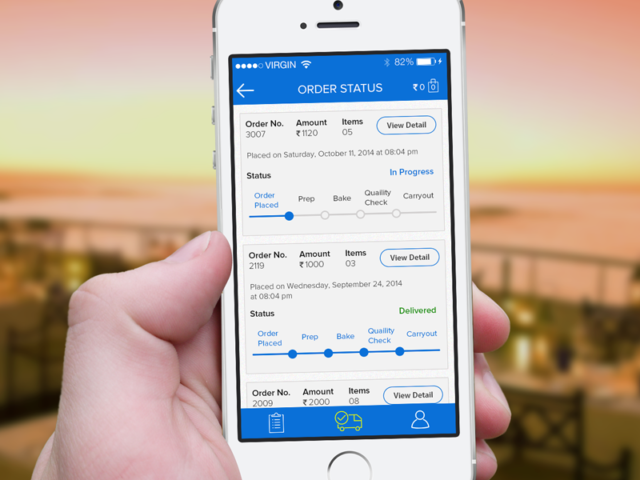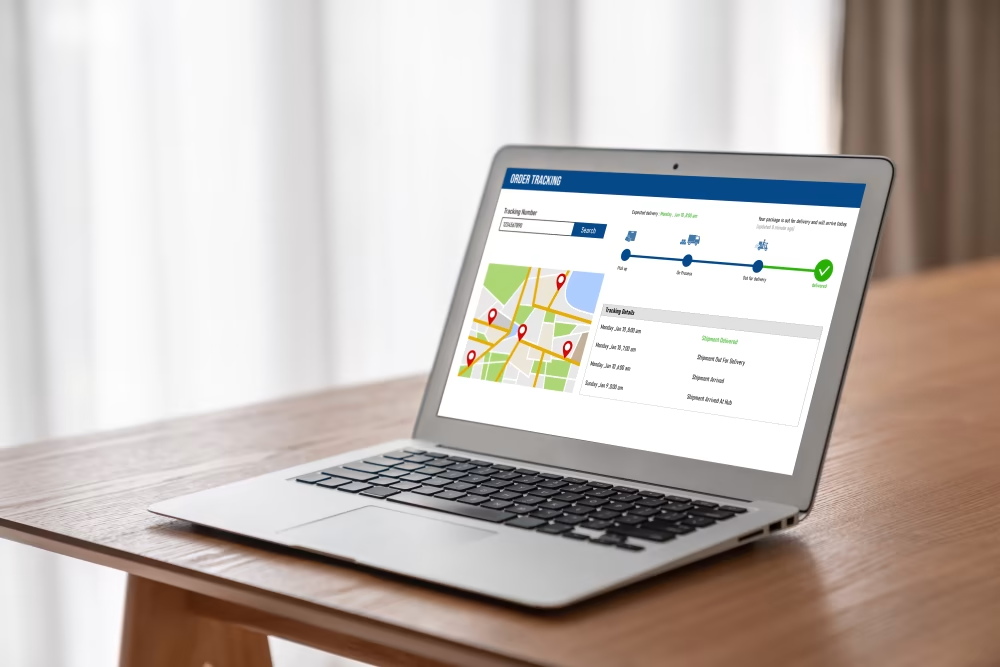The logistics and transportation industry is undergoing a significant transformation, driven by technological advancements and changing customer expectations. Mobile app development has emerged as a crucial strategy for logistics and transportation companies looking to enhance efficiency, improve customer service, and gain a competitive edge. Here are some key benefits of mobile app development for logistics and transportation businesses.

Table of Contents
Toggle1. Enhanced Communication and Coordination
Mobile apps streamline communication between drivers, dispatchers, and customers. With real-time messaging and notifications, all parties can stay informed about shipment status, delivery times, and any potential delays. This improved communication helps reduce misunderstandings and enhances coordination, leading to smoother operations.
2. Real-Time Tracking and Visibility
One of the most significant advantages of mobile app development in logistics is the ability to provide real-time tracking and visibility of shipments. Customers can monitor their deliveries through the app, receiving updates on location and estimated arrival times. This transparency builds trust with customers and allows businesses to address any issues proactively.
3. Improved Route Optimization
Mobile apps can incorporate advanced algorithms and GPS technology to optimize routes for delivery vehicles. By analyzing traffic patterns, weather conditions, and other factors, logistics companies can identify the most efficient routes, reducing fuel consumption and delivery times. This optimization not only saves costs but also enhances overall service quality.
4. Streamlined Inventory Management
For logistics companies handling warehousing and storage, mobile apps can simplify inventory management. Businesses can use mobile applications to track inventory levels, monitor stock movements, and manage orders in real-time. This level of oversight helps prevent stockouts, reduces excess inventory, and enhances order accuracy.
5. Increased Operational Efficiency
Mobile app development automates many processes, leading to increased operational efficiency. Tasks such as order processing, invoicing, and reporting can be streamlined through mobile apps, reducing manual work and minimizing errors. This automation allows employees to focus on more strategic tasks, ultimately improving productivity.
6. Enhanced Customer Experience
A well-designed mobile app enhances the overall customer experience. Customers can easily place orders, track shipments, and communicate with support teams through the app. Providing a user-friendly interface and convenient features fosters customer satisfaction and loyalty, making it easier for logistics companies to retain clients.
7. Data-Driven Insights
Mobile apps can collect and analyze data related to shipments, customer interactions, and operational performance. This data provides valuable insights that can inform decision-making and strategy development. Logistics companies can identify trends, monitor key performance indicators (KPIs), and make data-driven adjustments to improve service and efficiency.
8. Cost Reduction
Implementing mobile app solutions can lead to significant cost reductions in logistics and transportation operations. By optimizing routes, reducing manual processes, and improving inventory management, businesses can lower operational costs and enhance profitability. Additionally, real-time tracking helps mitigate losses due to theft or damage during transit.
9. Scalability and Flexibility
Mobile apps provide logistics companies with the flexibility to scale operations as needed. Whether expanding service areas, increasing fleet size, or diversifying offerings, a mobile app can adapt to changing business needs. This scalability is particularly beneficial in a dynamic industry where market conditions and customer demands can shift rapidly.
10. Competitive Advantage
In a highly competitive logistics landscape, having a mobile app can set a company apart from its competitors. A mobile app signifies a commitment to innovation and customer service, attracting tech-savvy customers who value convenience and efficiency. By leveraging app development, logistics companies can differentiate themselves and capture a larger market share.
Conclusion
Mobile app development is transforming the logistics and transportation industry, offering numerous benefits that enhance operational efficiency, improve customer satisfaction, and drive profitability. From real-time tracking and optimized routes to streamlined communication and data-driven insights, mobile apps are invaluable tools for logistics companies looking to thrive in today’s competitive landscape. As the industry continues to evolve, investing in mobile app development is not just an option; it’s a necessity for businesses aiming for long-term success and growth.


No responses yet